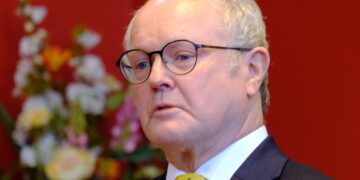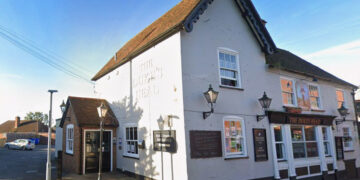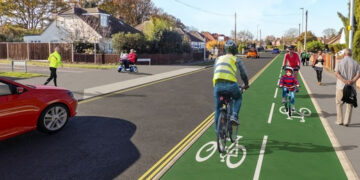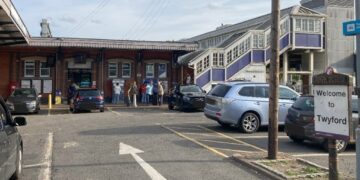From the Chamber by Cllr Paul Fishwick
Conservative-led Wokingham Borough Council is targeting a 40% reduction in car journeys by 2030 as part of its climate emergency tackling initiatives.
Why then is it wasting £17 million on easing congestion when it’s planning for 40% less cars on the road? Yes, you read that right.
The local Conservatives are spending £17 million tackling a problem they say isn’t going to exist.
The Department for Transport’s own analysis indicates that around 60% of car journeys are only up to 5km and within Wokingham borough, the vast majority of residents live within a 5km radius of the geographic centre.
So, instead of wasting £17 million on ‘shiny new traffic lights’ this money would be much better spent on providing an improved standard of Active Travel routes for walking and cycling, connecting where people live to schools, shops, businesses etc.
Evidence shows that with good and safe infrastructure, a significant model shift from the car to walking (up to 1km) and cycling (up to 5km) can be made for these shorter journeys, and in turn remove motorised traffic from the roads. The Council may then actually meet it’s target because it’s provided safe alternatives and therefore choice.
As well as reducing congestion, there is a growing body of evidence that demonstrates that cycle and pedestrian-friendly streets can boost footfall and retail sales, helping to revive traditional high streets and town centres by creating more pleasant conditions.
Passing motorised traffic does not do this but brings noise and pollution and an unpleasant environment.
In the past the Borough Council has continued with a policy of building poor quality infrastructure that does not attract new users.
Therefore, over the last six-year period this Conservative-led authority has spent £6 million on cycling infrastructure and not achieved anything in the take up of cycling. That’s because it is not safe and doesn’t connect.
In addition to installing safe infrastructure for cyclists, the council must consider emerging modes of transport like e-scooters.
The e-scooter is on trial at more than 50 locations across the country, but not Wokingham, and the first report has been published by the Parliamentary Advisory Committee for Transport Safety (PACTS) with some alarming evidence on casualties.
During 2020, it has been estimated that there were 484 casualties recorded in incidents involving e-scooters. Of these, 384 were the e-scooter users. However, it is known that these casualties are under recorded.
PACTS has collected more information for 2021, and the interim casualty data collected so far indicates that casualties are growing at a worrying rate. In the first 10 months of 2021 there were nine deaths involving an e-scooter and more than 300 other casualties with many having head injuries due to helmet use being uncommon.
These e-scooters, although not legal to use on the roads and cycleways of Wokingham Borough yet are likely to be legalised in the near future.
The Bicycle Association has estimated that 360,000 e-scooters were purchased by the public during 2020 and sales remain similar.
The e-scooter as a method of transport is coming, but the Borough Council’s infrastructure is not ready and not safe. That needs to change now.
Instead of wasting £17 million on making it easier to drive, and thus generating more emissions, the money must be invested urgently into greener, safe modes of transport
Cllr Paul Fishwick is the Lib Dem councillor for Winnersh














































